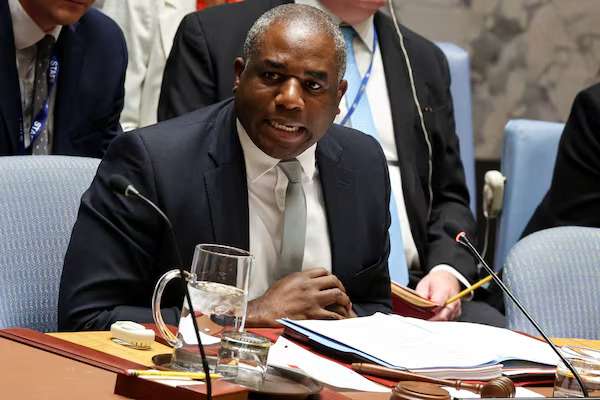In a controversial move, Russia has vetoed a UK-backed UN Security Council resolution calling for a ceasefire in Sudan, drawing harsh criticism from Western nations and activists.
The proposal, co-sponsored by the UK and Sierra Leone, sought to halt hostilities between Sudan’s military and the paramilitary Rapid Support Forces (RSF), whose power struggle has plunged the country into chaos.
The civil war, which erupted in April 2022, has left tens of thousands dead and displaced over 11 million people. Aid organizations warn that Sudan is facing one of the world’s worst humanitarian crises, with widespread famine looming.
The draft resolution urged both sides to immediately stop fighting, engage in peace talks, and honor prior agreements to protect civilians. It specifically condemned RSF-led attacks in the Darfur region, where violence has been particularly brutal.
While 14 Security Council members voted in favor, Russia’s veto blocked the resolution. Sudan’s UN ambassador, Al-Harith Idriss al-Harith Mohamed, also opposed the draft, citing omissions, including a clause condemning alleged RSF support from the United Arab Emirates (UAE) — claims the UAE denies. He also sought to label the RSF as “terrorists … because it wages a war of extermination against civilians.”
“A Disgrace,” Says UK
UK Foreign Secretary David Lammy denounced the veto, calling it “a disgrace” and accusing Russia of prioritizing its interests over Sudanese lives.
“I ask the Russian representative in all conscience … how many more Sudanese have to be killed? How many more women have to be raped? How many more children have to go without food before Russia will act?”
David Lammy

US Ambassador to the UN, Linda Thomas-Greenfield, echoed these sentiments, accusing Russia of playing “both sides of the conflict to advance its own political objectives, at the expense of Sudanese lives.”
Russia Defends Its Position
Russian envoy Dmitry Polyanskiy rejected the accusations, arguing that the resolution undermined Sudan’s sovereignty. He described it as “an attempt to meddle” in Sudan’s internal affairs and accused Western nations of exploiting crises in former colonies to serve their own agendas.
On social media, he wrote, “Shame on you, the UK! For trying to push through a resolution that pours gasoline into [the] Sudan crisis.”
Russia, which analysts say initially supported the RSF, is now perceived as siding with Sudan’s military. Sudan expert Alex de Waal criticized Moscow’s stance, describing it as “an extraordinary argument to make in the face of the humanitarian catastrophe.”
De Waal also lamented the day’s broader implications for Africa, noting that the African Union (AU) had previously acted as a mediator between divided global powers over Sudan. “It’s a very bad day for Africa,” he said, citing the collapse of diplomatic unity on the continent.
Escalating Crisis and Accusations
The Sudanese military, which controls the government, and the RSF have both been accused of human rights violations that could constitute war crimes. Activists have condemned the UN for being slow to respond to the crisis, which has devastated large swathes of the country.
Sudan’s UN ambassador also accused the RSF of launching a “war of extermination” against civilians, adding that the proposed resolution failed to address key concerns, including alleged foreign interference.
With the conflict in its 19th month, the situation in Sudan remains dire. Aid groups report critical shortages of food and medicine, while displacement and violence continue unabated.
The veto has highlighted stark divisions in the Security Council, with Western nations and Russia at odds over Sudan’s future. For millions of Sudanese citizens, however, the political wrangling offers little solace as they face a deteriorating humanitarian crisis.
READ ALSO: Chidimma Adetshina Announces Break From Beauty Contests




















